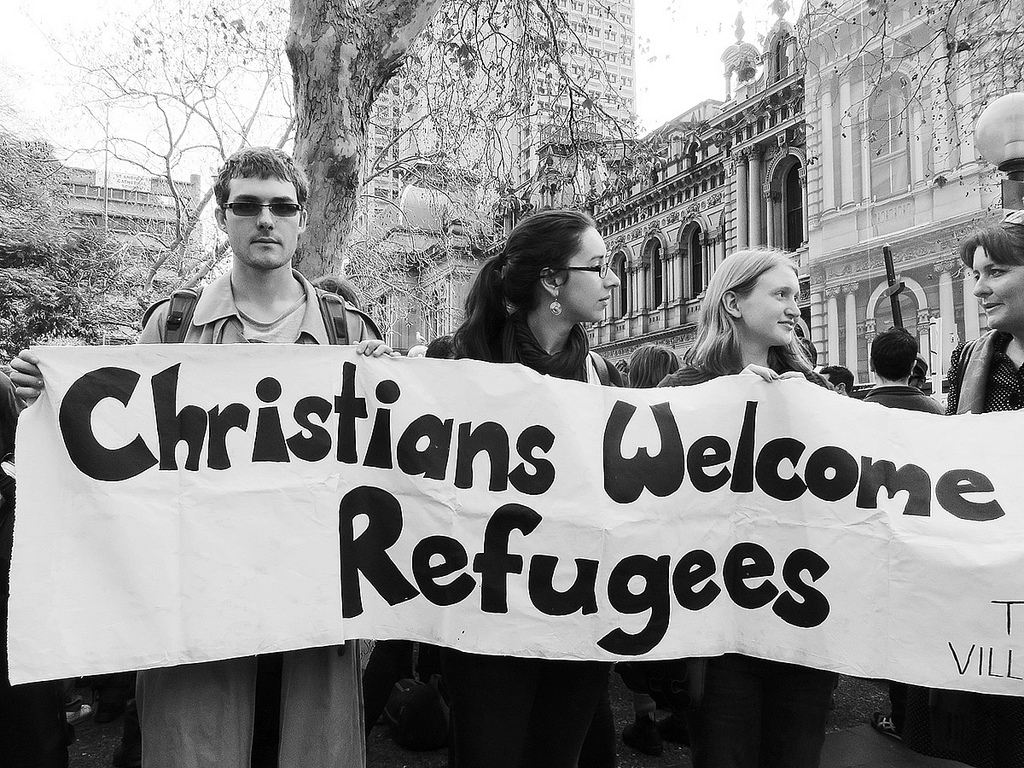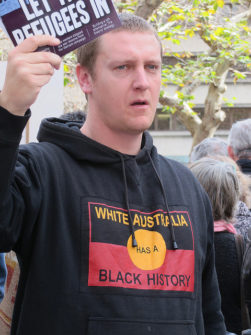
Even if the current ascent of populist parties turns out to be a transient development in the history of modern democracies, the centrality of national and religious identities for the success of populists’ “redemptive” politics (to use Margaret Canovan’s renowned notion) should be taken less as a sign of pathology of democracy and more as an indication of neglect of a vital social question—that of democratic formation of particular group attachments in complex, pluralistic societies.
The achievements of both progressive and right populist parties have greatly depended on the powerful unitary notion of the ‘we’ to which individual supporters attach their passions and commitment. While the latter, as Chantal Mouffe and Ernesto Laclau have argued, revitalizes democratic life by increasing agonistic engagements, it also affirms collective belonging in ways that ultimately constrict both democratic contestation and deliberation. Populisms thus raise the stakes in any attempt to reconcile several important democratic concerns: with that which binds individual citizens into one national community; with the responsibility citizens might have toward those outside their national group; and, with pluralism as a platform for citizens’ deliberation and disagreement about the ideals of national identity and common good.
Put differently, populisms compel us to probe contemporary languages and practices that would allow for individuals to bind themselves to national collectivities in ways that are particular while also being capacious. One way to do this is to explore the links between identity and solidarity, with the former referring to particular forms of group attachments and the latter denoting the imperatives of responsibility to those outside such allegiances. Many thinkers have reflected on these two notions—from Hannah Arendt and Pope John Paul II, to philosophers Anthony Appiah, Charles Taylor, and political theorist Amy Gutmann. For our present discussion, the work of American historian David Hollinger is especially instructive because he not only directly relates the two notions, he also asserts a divide between the ethics of identity and the ethics of solidarity. For Hollinger, the concept of identity is quasi-mystical, shaped by what we share with others, and can promote violence. Solidarity, on the other hand, is an “experience of willed affiliation” and entails “conscious commitment” and a level of deliberation and moral choice. Viewed this way, identity and community express a fated sense of belonging, while solidarity represents agency, that is, one’s choice of commitment to others and to a more expansive constitution of the ‘we.’
Hollinger’s arguments have ethical and political import: he suggests that solidarity is most needed when we have a choice whether to be bound to those with whom we do not share history or culture. This is a type of imperative that posits itself in situations such as the European “refugee crisis,” in which the EU and its member countries have to establish not only concrete policies but also reimagine the sources of solidarity with those outside the EU borders. If one is to follow Hollinger’s propositions, the ascribed forms of attachments—religious, national, cultural, civilizational—cannot but hinder the Europeans’ obligation to alleviate the conditions of suffering of others, and most concretely, of Muslim refugees from Africa, the Middle East, and Asia.
Hollinger considers identity and solidarity in a manner that states explicitly that which is often implicitly and unreflexively assumed in thinking about these two notions—the idea that particular attachments are irredeemable in relation to more universal ethical commitments. This way of thinking permeates, among others, the recent works on European Christianities, populisms, and Islamophobia—for example, the manner in which social scientists Olivier Roy and Rogers Brubaker write about the connections between contemporary European populisms and identitarian Christianity. They posit the latter as culturally particular, devoid of substantive (Brubaker) and positive, universal elements of Christian faith (Roy), thus as intolerant, and ultimately complicit in authorizing the contemporary European Islamophobia (both Roy and Brubaker). Here, Christianity as a particularized form of religious identity is straightforwardly attached to intolerance and rejection of different others.

The relationship between particular attachments and ethical commitments beyond one’s own group, however, is a bit more complex. Take these two snapshots from the Polish and German debates about refugee crisis: For Archbishop Henryk Muszynski of Gniezno, one of the Catholic Church’s very few critics of the Polish government’s policy toward refugees, Poland has a “full right” to express its “religious, national, and historic identity.” But, in not accepting the refugees, Poland is “condemning itself, by its own choice, to total isolation” and is undermining “the foundation of social and international solidarity.” For Silke Radosh-Hinder, pastor of the Evangelical Church in Germany, German Christians have a moral as well as historical responsibility to fight far-right politics and to accept refugees. In these two instances, do particular national experiences and historical locations constrain or broaden one’s ethical commitments? Do particular attachments serve as a platform to reject or, rather, to embed a sense of solidarity of European Christians with non-Christian, non-European others?
The scholars of “multiple,” “vernacular,” and “contending” modernities—from Shmuel N. Eisenstadt to Nilüfer Göle—have long proposed that the encounters between traditional and the more universal forms of affiliation happen in a dialectic manner. The success of the populists’ redemptive politics also alerts us to the fact that, in a global capitalist world shaped by transnational ideals, interests, and institutions, matters of particular group identity remain as relevant as ever. One of the challenges of our times lies in identifying and affirming the democratic responses to narrow, anti-pluralist populist conceptions of the links between national, cultural, and religious identities. In my view, a forceful response to such conceptions can emerge if we attend to the convergences between identity and solidarity. Moving beyond the notion of their disconnect or inevitable conflict would highlight the productive relationship between narratives of particular identities (as these continue to provide the frameworks of social cohesion and give concreteness to various forms of moral commitment) and the more universally framed ethics of responsibility and solidarity (as it challenges the exclusionary nationalist and nativist narratives shaping so much of our contemporary moment).

